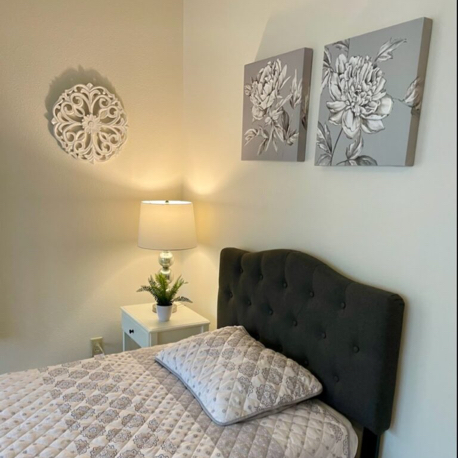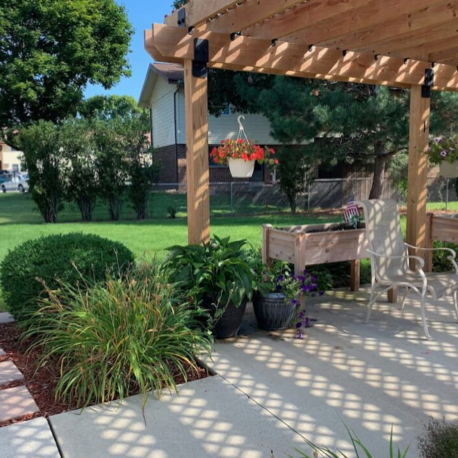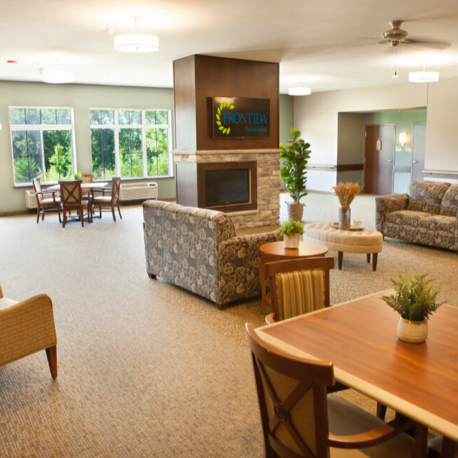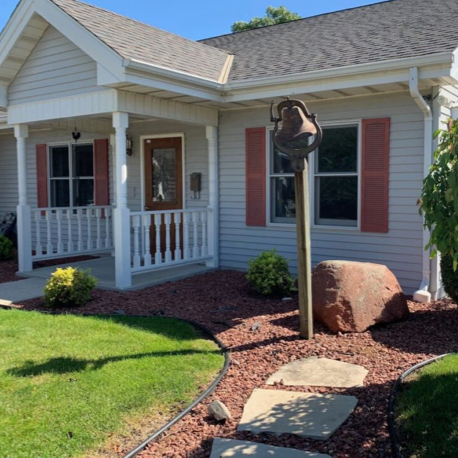Receiving an Alzheimer’s diagnosis especially when combined with a behavioral health condition like anxiety, depression, bipolar disorder, or schizophrenia, can bring about an overwhelming mix of emotions, decisions, and responsibilities. These complex, co-occurring conditions can impact more than just the individual, they can reshape the entire family dynamic.
If you’ve recently found yourself in this situation, you may feel overwhelmed or unsure where to start. However, it’s easier to get started than you may think. First, try to learn more about Alzheimer’s, to help understand the changes to your loved one’s behavior and abilities, prioritize effective communication, and establish support systems for taking care of yourself while you care for your loved one.
At Willowgreen Home, we specialize in behavioral assisted living for seniors experiencing both cognitive decline and behavioral health challenges. With trained staff, personalized care, and a secure environment, we help residents feel safe, healthy, and happy, while offering families peace of mind and meaningful support.
How Alzheimer’s & Behavioral Health Conditions Affect Family Life
Alzheimer’s doesn’t just affect memory; it changes how a family functions. When someone you love is living with Alzheimer’s and a behavioral health condition, it can disrupt long-held routines, emotional roles, and caregiving responsibilities. Roles may shift as certain family members assume caregiving responsibilities. Long-held routines may be disrupted, and emotions like stress, frustration, and grief can take a toll.
For example, one sibling might step into a leadership role to manage care, which can create tension if others feel left out. A spouse may transition from partner to a caregiver, altering the marriage dynamic. Adult children may find themselves providing the kind of care they once received.
Understanding that these changes are natural and common is the first step in managing them. Open communication and shared responsibility can help prevent misunderstandings as families adapt to their new normal.
How to Deal With Alzheimer’s as a Family Member
Caring for someone with Alzheimer’s and behavioral health needs can be overwhelming, but you don’t have to do it alone. Here are a few ways to find balance:
Educate Yourself
Knowledge is one of the most potent tools in facing Alzheimer’s. Learn about the stages of the disease, the symptoms to expect, and how it progresses. Understanding what your loved one is experiencing can help you provide the proper care and react with patience and empathy.
There are numerous resources for families dealing with Alzheimer’s, including:
- The Alzheimer’s Association
- Books like The 36-Hour Day
- Online courses and local support groups
Seek Support
You don’t have to manage this journey alone. Lean on loved ones, friends, and outreach programs to lighten the load. Look for local Alzheimer’s support groups where you can connect with others who are in similar situations. Sharing your experiences, frustrations, and triumphs with those who understand can be deeply comforting.
Professional support can also make a major difference. Partnering with trained caregivers or a behavioral memory care community like Willowgreen Home can relieve stress and provide more comprehensive care for your loved one.
Take Care of Yourself
Caregiver fatigue is real, and common when supporting someone with Alzheimer’s and behavioral health challenges can be both emotionally and physically exhausting. Studies show that caregivers are at a higher risk of burnout, depression, and health issues. To avoid this, prioritize your self-care:
- Make time for activities that you enjoy.
- Exercise regularly to relieve stress.
- Lean on friends and family when you need a break.
Remember, taking care of yourself enables you to better care for your loved one.
Communicate Effectively
Communication can become increasingly challenging when your loved one is experiencing emotional distress, paranoia, or mood swings. Your words, tone, and patience can all influence how safe and supported they feel. Here’s how you can adapt your communication:
- Simplify your sentences.
- Speak calmly and clearly.
- Be patient and don’t rush them.
- Use visual cues or gestures to help express meaning.
Focusing on connecting is essential, even as verbal communication becomes more difficult.
How to Handle Difficult Behaviors
Alzheimer’s is known for bringing changes in behavior, which can be distressing for family members. These may include aggression, wandering, or sudden mood swings. When these challenges arise:
- Stay calm. Your reaction can often influence your loved one’s response.
- Identify triggers. Pay attention to what might be causing the behavior. Are they in pain? Confused? Hungry?
- Validate emotions. If your loved one becomes upset, acknowledge their feelings before redirecting attention to something soothing or enjoyable.
For example, if they insist they need to “go home” when they’re already at home, rather than contradicting them, you might say, “Tell me more about home.” This helps them feel heard and understood and opens the door to a more nuanced explanation.
How Behavioral Memory Care Can Support You
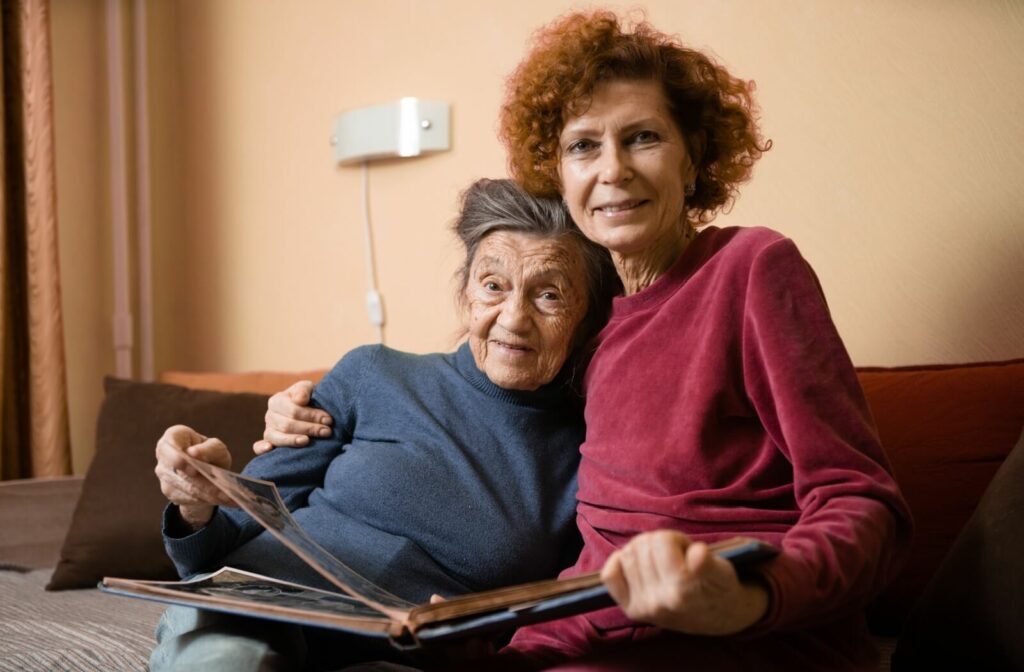
Caring for a loved one with Alzheimer’s or a behavioral health condition doesn’t have to fall entirely on your shoulders. Communities like Willowgreen Home are designed to support both residents and their families through behavioral memory care.
Our team is trained to meet the complex needs of individuals living with dementia, Alzheimer’s, and co-occurring behavioral health diagnoses. With structured routines, therapeutic programming, and 24/7 compassionate care, we create a safe, supportive environment where your loved one can feel secure, and you can feel confident they’re receiving the care they deserve.
If you’re unsure whether memory care is the right step, many communities offer consultations or trial stays to help you make an informed decision.
Building Resilience as a Family
Supporting a loved one with both Alzheimer’s and behavioral health needs is a journey, and it’s one no family should have to navigate without help. With the right care, structure, and compassion, it’s possible for your loved one to enjoy meaningful, fulfilling days.
At Willowgreen Home, we’re here to support your family with the understanding, expertise, and heart it takes to make each day better.
Contact us today to learn how we can help your loved one live safely and happily in a place designed just for them.


